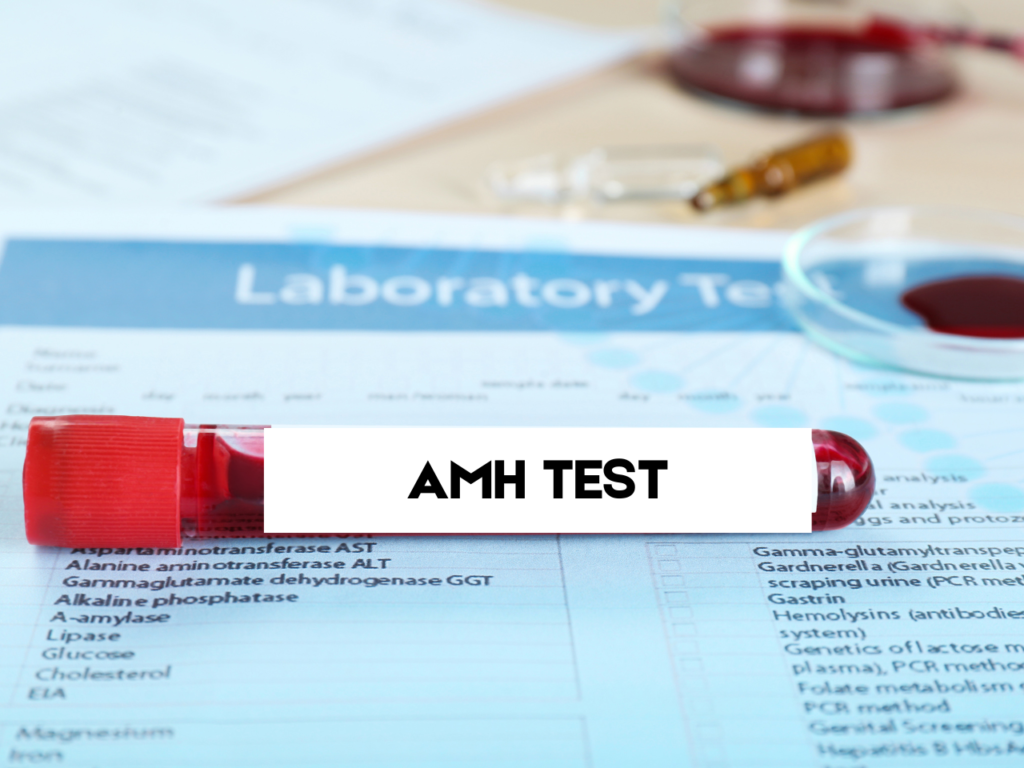What is AMH?
Anti-Müllerian Hormone (AMH) is a hormone produced by the small follicles in a woman’s ovaries. It serves as a key indicator of ovarian reserve, which refers to the number of eggs a woman has at any given time. AMH levels help assess a woman’s fertility potential and play a crucial role in diagnosing reproductive health conditions.

Why is AMH Important?
AMH is widely used in fertility assessments because it provides a direct estimate of ovarian reserve. Unlike other fertility hormones that fluctuate throughout the menstrual cycle, AMH levels remain relatively stable, making it a reliable marker for reproductive health.
How is AMH Measured?
AMH levels are measured through a simple blood test, which can be taken at any time during the menstrual cycle. The results help doctors determine:
Ovarian reserve (egg quantity)
Response to fertility treatments like IVF
The onset of menopause
Risk of conditions like Polycystic Ovary Syndrome (PCOS) or Premature Ovarian Failure (POF)
What Do AMH Levels Indicate?
AMH levels vary with age and can provide insight into a woman’s fertility status:
High AMH (>4.0 ng/mL): Common in women with PCOS; indicates a high egg reserve but may be associated with irregular ovulation.
Normal AMH (1.0–4.0 ng/mL): Suggests a good ovarian reserve and a healthy reproductive window.
Low AMH (<1.0 ng/mL): Indicates a declining ovarian reserve, which may impact natural conception and response to fertility treatments.
Very Low AMH (<0.5 ng/mL): Suggests diminished ovarian reserve, often associated with approaching menopause or infertility concerns.
Factors Affecting AMH Levels
Several factors influence AMH levels, including:
Age: AMH naturally declines as a woman ages.
PCOS: Women with PCOS often have higher AMH levels due to an increased number of follicles.
Lifestyle: Smoking, obesity, and stress can negatively impact AMH levels.
Medical Treatments: Chemotherapy, radiation, and ovarian surgeries can lower AMH levels.
AMH and Fertility Treatment
IVF (In Vitro Fertilization): AMH levels help predict ovarian response to stimulation during IVF.
Egg Freezing: Women considering egg freezing for future use can assess their reproductive timeline based on AMH levels.
Ovarian Stimulation: Fertility specialists adjust medication doses based on AMH levels to improve treatment outcomes.
Can AMH Levels Be Improved?
While AMH levels naturally decline with age, certain lifestyle changes may support ovarian health:
Maintain a healthy diet rich in antioxidants and omega-3 fatty acids.
Reduce stress through yoga, meditation, or exercise.
Avoid smoking and excessive alcohol consumption.
Consider supplements like CoQ10 and Vitamin D, which may support egg quality.
FAQs
AMH (Anti-Müllerian Hormone) is a hormone produced by the ovaries that reflects a woman’s ovarian reserve (egg supply). It helps in assessing fertility potential and planning for pregnancy.
📊 AMH levels vary by age, but general ranges are:
✅ High: Above 4.0 ng/mL (May indicate PCOS)
✅ Normal: 1.0 – 4.0 ng/mL
✅ Low: Below 1.0 ng/mL (May indicate reduced egg reserve)
🤰 AMH levels give an estimate of egg quantity, but not quality. Even with low AMH, pregnancy is possible naturally or through fertility treatments like IVF.
While AMH naturally declines with age, a healthy lifestyle (balanced diet, regular exercise, stress management, and avoiding smoking/alcohol) can support overall egg health.
If you are planning for pregnancy (now or in the future), have irregular periods, PCOS, or a family history of early menopause, checking AMH can help with fertility planning.
Conclusion:
AMH is a vital fertility marker that provides valuable insights into a woman’s reproductive health. Whether planning for conception now or in the future, understanding AMH levels can help make informed decisions about fertility preservation and treatment options. If you’re concerned about your fertility, consult a fertility specialist for personalized guidance based on your AMH levels and overall reproduactive health.

